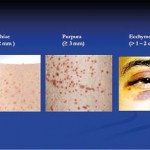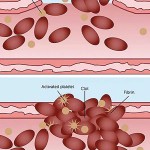Living with ITP condition
View(s):What is ITP?
ITP stands for Immune Thrombocytopenic Purpura, a condition where an ongoing immune response leads to the destruction of platelets due to the formation of antibodies. This results in a low platelet count in the blood.
There are two distinct types of ITP:
Primary ITP: This occurs when an individual is diagnosed with ITP, but the underlying immune mechanism is not identifiable.
Secondary ITP: This type occurs when the low platelet count is due to an identifiable immune disorder, such as a viral infection or an underlying autoimmune disorder like lupus or rheumatoid arthritis etc.…
What are platelets and what is their function in blood?
Platelets are small, cell fragments found in blood, produced in the bone marrow. When an external or internal injury occurs, platelets gather at the injured site and form a blood clot to prevent excessive bleeding. This process of stopping bleeding is known as hemostasis. Both the quantity and quality of platelets must be normal for effective hemostasis. In a healthy adult, the normal platelet count ranges from 150,000 to 400,000 per cubic millimeter (mm³). Therefore, a low platelet count will lead to an increased tendency to bleed.
What are the symptoms of ITP? How do I get to know that I have ITP?
ITP (Immune Thrombocytopenia) can cause bleeding from various sites. Commonly, it leads to skin bleeding, such as ecchymotic patches and purpura. Other symptoms include nosebleeds, gum bleeding, increased menstrual bleeding, blood in the urine (hematuria), and gastrointestinal bleeding. Fortunately, intracranial bleeding (bleeding inside the brain) is very rare in ITP.
Sometimes, a low platelet count is discovered incidentally during a blood count performed for another reason, even without any bleeding symptoms. If you have a low platelet count, it is important to consult a hematologist. They will conduct a series of blood tests to determine the exact cause, as there are many other potential causes of a low platelet count besides ITP.
Approximate platelet counts and bleeding tendency in ITP -
n Platelet counts up to 50,000 typically do not show significant bleeding manifestations.
n Platelet counts between 30,000 and 50,000 may lead to excessive bleeding with minor trauma.
n Platelet counts below 30,000 can result in spontaneous bleeding manifestations.
There may be slight individual variations in these thresholds
Is ITP curable?
In some people, ITP can resolve within a few weeks, often in less than a month, which is referred to as “acute ITP.” However, in the majority of cases, ITP tends to have a long, protracted course, and is then termed “chronic ITP.”
Can ITP transform into a bone marrow malignancy? – No, it will not
Can ITP run in families?
Yes, ITP can develop in family members, similar to other autoimmune disorders, especially if a first-degree relative has ITP. However, the inheritance pattern is usually unknown.
Living with ITP
If you have been diagnosed with ITP, you can still lead a normal lifestyle by maintaining a safe platelet count. It is not necessary to achieve a normal platelet count, but keeping it at a safe level is crucial to minimize the risk of bleeding. Regular clinic follow-ups are important for this purpose.
Be mindful of the risk of bleeding, and if you notice any kind of bleeding, it is advisable to get a blood test (full blood count) to check your platelet count and seek medical advice accordingly. If your child has ITP, educate school teachers about the nature of the disease and the associated risk of bleeding.
Maintaining good dental hygiene is extremely important, as oral bleeding with ITP can be very troublesome. Avoid taking over-the-counter analgesics like aspirin, ibuprofen, and diclofenac sodium (NSAIDs), as these drugs compromise platelet function and further increase the risk of bleeding
When do you need
treatment for ITP?
As mentioned earlier, it is not necessary to normalise the platelet count, but it must be maintained at a safe level to minimise bleeding risk. Regular monitoring of the platelet count is essential.
Treatment is usually initiated when the platelet count falls below 20,000 to 30,000, or if the individual experiences significant bleeding. Additionally, treatment is necessary when a patient is awaiting surgery to ensure the platelet count is high enough to safely undergo the procedure.
What are the medications available for treatment of ITP?
n Steroids: Prednisolone (oral tablet) is commonly used as a first-line drug, showing a 60-70% response rate in normalising platelet count. However, it cannot be used long-term due to its side effects and must be tapered off over time. Many people experience a drop in platelet counts when tapering off prednisolone, necessitating the use of second-line drugs.
n Second-line drugs: These include oral tablets like Dapsone, Azathioprine, Mycophenolate Mofetil (MMF) or Rituximab (IV form)
n Thrombopoietin mimetics: Drugs like Eltrombopag (oral tablet) have shown very successful responses in the treatment of ITP.
n IV Immunoglobulin: This is administered as an intravenous infusion to increase platelet count on an immediate basis.
Surgery – Surgical removal of the spleen (splenectomy) has been done since early days as a treatment option for ITP. But with the availability of new drugs, it is less practiced nowadays.
Take home message –
Living with ITP can still mean leading a normal lifestyle, provided you maintain a safe platelet count and ensure regular clinic follow-ups and medical advice. If you experience any abnormal bleeding or discover a low platelet count incidentally, even without bleeding symptoms, it is crucial to seek advice and treatment from a Consultant Hematologist who specializes in diagnosing and treating blood disorders.
HitAd.lk is the best and biggest mobile phone market in Sri Lanka, and we guarantee you will find what you need here from our extensive listing of mobile phones for sale in Sri Lanka. Whether it’s a budget-priced smartphone for communication, or higher end features with advanced connectivity, there are many different options from which to choose from on our site!







